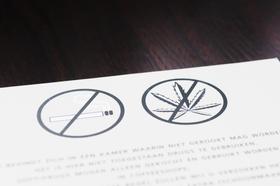The A-B-C's of Tutoring
Having raised four children, I can tell you that occasionally, you will have to think seriously about providing some kind of tutoring for your child. Now, don't confuse tutoring with the specialized help that your child will require if she has special needs or learning difficulties. That is an entirely different situation. I have written about that in When Should You Consider A Special Needs School
Why does your child need a tutor?
Think of tutoring as that extra help your child needs to master a skill or to understand a concept. I know that you are probably wondering why your child can't get by with the teaching she receives every day at her school. Truthfully, her teachers may be providing about 90% of what she needs to learn something. Now, I am not knocking your child's teachers. The reality is that every child learns differently. And sometimes it simply takes a little longer for the light to go on, for that "Eureka!" moment we all have when suddenly we get it.
In this brief video, Alex of Prepped & Polished offers three characteristics to look for when you engage a tutor.
I used to struggle with learning history in high school. It most likely had something to do with the very dry presentation of world history in fashion back in the early 60s. But history began to make sense when an expert lecturer used a timeline to explain the events and people. You see, a tutor is an expert. She brings extensive experience in her subject when she teaches your child how to master the concept with which she is struggling. She knows how to present the material and ideas in various ways, depending on how your child learns.
That's why you need to consider engaging the services of a tutor for your child.
When should you hire a tutor?
Now, a word about timing. Generally, children in the primary grades won't need tutoring. Somewhere around grade 6 or 7 is when you might begin to notice the signs that your child requires some additional teaching. I well remember one of my children bringing home a report card that showed that she was having difficulty with mathematics. Naturally, we thought we could handle the situation ourselves. After all, we had plenty of experience with math, and we had college degrees. There is no need to find a tutor, right? Wrong! First, we had no time to devote to consistent teaching sessions. Children who need extra help in a subject need to have that help provided regularly. Hit-or-miss scheduling will not work. As it turned out, we quickly realized we were getting nowhere fast. So, we swallowed our pride and hired a tutor. Six sessions later, our daughter was beaming as she showed off the A's on her math papers. The A on her report card made the cost of tutoring worthwhile. It was money well spent.
Which method and/or format is best?
Now that you have decided your child needs tutoring, what is the best way to tutor her? You have several solutions to consider.
- One-on-one lessons with a professional, experienced tutor.
- Video sessions via Skype with a professional, experienced tutor.
- Group sessions in person or online.
- Pre-packaged lessons in print and/or digital format
Each method of tutoring has its advantages and disadvantages. First, assess the level of help which your child requires. Does she need serious, concentrated face-to-face time with a professional tutor? Or will some practice using online or printed materials suffice? Second, evaluate each tutoring method yourself. Explore the materials used. Review the lesson plans. Find out how each service assesses your child's skills and any deficiencies.
The time-tested one-on-one lessons generally produce the best results for most students. Why? Because a teacher working with one student can take as much time as needed to explain a concept and demonstrate it in various ways.
The next best tutoring solution would be having two or three students working with the tutor. This small group setting will also produce good results. Since young people imitate their peers, sometimes just seeing a friend struggling with the same skill or concept will help your child understand there is nothing wrong with her. She will learn the value of persistence when faced with seemingly insurmountable challenges. That lesson will prove very valuable when she is an adult.
If transportation is a problem, as it is in many parts of the country, then explore tutoring via Skype. While tutoring via video lacks the immediacy of having a tutor sitting next to you, it truly is the next best thing.
If you decide to use an online course or printed materials, the onus will be on you as her parent to schedule your child's practice sessions regularly. You will also have to monitor her progress and determine whether she is benefitting from this approach to tutoring. Be prepared to implement other tutoring methods if necessary.
The Princeton Review has been helping students since 1981. This clip shows you how their online academic help works.
Online practice materials and courses can be a helpful way to cover the basics of standardized tests such as TOEFL, SSAT, SAT, and so on. Then, engage a tutor to fill in gaps and offer test-taking tips.
Who should be your child's tutor?
Who should you engage as your child's tutor? The answer to that question depends on the level of tutoring required, your location, and the recommendations your child's current teachers make. When our daughter needed extra help with math, we engaged her local teacher for two reasons. First, the teacher was competent and knew how to teach the subject. Secondly, she was known to us as a trusted professional who was a neighbor. Our house was located across from our daughter's school, so having her teacher over to tutor her for an hour once a week worked perfectly for us. As I recall, 10 sessions solved many mathematical riddles and gave our daughter the confidence she needed to understand math.
Always ask your local school teachers who they can recommend for tutoring. Use a Google search to explore all of your options. Your local schools will probably recommend local teachers. But there are plenty of enthusiastic, competent tutors outside your local area who may be just what you are looking for.
Finally, you know your child better than anybody. Trust your instincts when it comes to tutoring.
Questions? Contact us on Facebook or Instagram. @privateschoolreview
#tutoring #academics #students #learning #education #onesizefitsall #educationalsupport #onlinetutoring #findthetutor #yourchildscansuceed






















